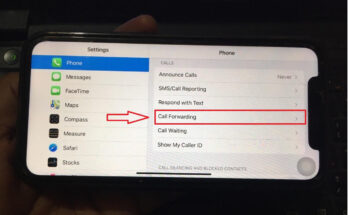“I love you” is a powerful phrase that can convey feelings of deep affection and connection in any language. If you’re curious about how to express this sentiment in different languages, we’ve got you covered.
When you tell someone “I Love U,” you are communicating a sense of commitment, devotion, and care for them. You are acknowledging their importance in your life and expressing your willingness to support and stand by them through thick and thin. You are saying that you appreciate them for who they are, flaws and all, and that you are grateful for the love and happiness that they bring into your life.
However, saying “ILU” is not just about expressing your own feelings – it is also about listening and understanding the feelings of the other person. Love is a two-way street, and both partners need to be willing to give and receive love in order to maintain a healthy and fulfilling relationship.
In this blog post, we’ll explore 100 different languages and their unique ways of saying “I love you.”
I Love You in Different Languages:
I Love You in Akan
Me dowapaa
I Love You in Amharic
Anekumena
I Love You in Arabic
Ana behibek (أنا بحبك)
I Love You in Awadhi
Hamra se pyaar ba (हमर से प्यार बा)
I Love You in Azerbaijani
Mən səni sevirəm
I Love You in Baluchi
Man tawâr prem karün
I Love You in Bengali
Āmi tōmāẏa bhālōbāsi (আমি তোমায় ভালোবাসি)
I Love You in Bhojpuri
Hamra se pyaar ba (हमर से प्यार बा)
I Love You in Burmese
Mainnkohkyittaal (မင်းကိုချစ်)
I Love You in Cebuano
Nahigugma ko nimo
I Love You in Chewa
Ndimakukonda
I Love You in Chhattisgarhi
Mor prem karhe chhe
I Love You in Chhattisgarhi
Mor prem karhe chhe
I Love You in Czech
Miluji tě
I Love You in Deccan
Mi tujhyavar prem aahe
I Love You in Dhundhari
Main tero prema karu chhu
I Love You in Dutch
Ik hou van je
I Love You in English
I Love You
I Love You in French
Je t’aime
I Love You in Fula
Mi yàndì màndíkí fò
I Love You in Fulfulde
Mbi séré
I Love You in German
Ich liebe Dich
I Love You in Greek
S’agapo (Σ’αγαπώ)
I Love You in Gujarati
Hoon tane prem karu chu (હું તને પ્રેમ કરુ છું)
I Love You in Haitian Creole
Mwen renmen ou
I Love You in Haryanvi
Ma tera saan pyar karu
I Love You in Hausa
Ina son ku
I Love You in Hebrew
Ani ohev otach (male to female) / Ani ohevet otcha (female to male)
I Love You in Hindi
Main tumhe pyaar kartaa hoon (मैं तुम्हे प्यार करता हूँ)
I Love You in Hmong
Kuv hlub koj
I Love You in Hungarian
Szeretlek
I Love You in Igbo
Aḿaka m gị nụ
I Love You in Ilocano
Ay-ayaten ka
I Love You in Indonesian
Aku cinta padamu
I Love You in Italian
Ti amo
I Love You in Japanese
Aishiteru (愛してる)
I Love You in Javanese
Aku tresna sampeyan
I Love You in Jin Chinese
Ngou oi loi (我爱你)
I Love You in Kannada
Naanu ninna preetisuttene (ನಾನು ನಿನ್ನ ಪ್ರೀತಿಸುತ್ತೇನೆ)
I Love You in Kazakh
Men seni jaqse qorsh
I Love You in Kinyarwanda
Ndagukunda
I Love You in Kirundi
Ndi wowe kuki
I Love You in Konkani
Hāñv tukam mog karta
I Love You in Korean
Salanghae (사랑해)
I Love You in Kurdish
Ez hej te dikim
I Love You in Latvian
Es tevi miilu
I Love You in Magahi
Aa hawae hamra jīva ke pyāra hae
I Love You in Maithili
Ham ke chhain (हम के छैं)
I Love You in Malagasy
Tiako ianao
I Love You in Malay
Saya cinta padamu
I Love You in Malayan
Saya cintakan awak
I Love You in Malayan
Saya cintakan awak
I Love You in Mandarin Chinese
Wǒ ài nǐ (我爱你)
I Love You in Marathi
Majhe tuze prem aahe (माझे तुझे प्रेम आहे)
I Love You in Marwari
Maaru tamne pyaar chho
I Love You in Min Nan Chinese
Góa ài lín (我愛汝)
I Love You in Nepali
Ma timī’ī rūmā bācna chu (म तिमीलाई रुमाले बाच्न चु)
I Love You in Oriya (Odia)
Mu tume bhala pauchhi
I Love You in Oromo
Ani aaddee
I Love You in Pahari-Potwari
Ma bho ka chao
I Love You in Polish
Kocham Cię
I Love You in Portuguese
Eu te amo
I Love You in Punjabi
Main tuhanu pyar karadā hāṁ (ਮੈਂ ਤੁਹਾਨੂੰ ਪਿਆਰ ਕਰਦਾ ਹਾਂ)
I Love You in Quechua
Kuyanayki
I Love You in Quechua
Munayki
I Love You in Romanian
Te iubesc
I Love You in Russian
Ya tebya lyublyu (Я тебя люблю)
I Love You in Saraiki
Maen tu piar karn da haan (میں تو پیار کرن دا ہاں)
I Love You in Saraiki
Maen tu piar karn da haan (میں تو پیار کرن دا ہاں)
I Love You in Shona
Ndinokuda
I Love You in Sindhi
Maan tu saan piyar ahe (مان تو سان پيار آهي)
I Love You in Sinhala
Mama oyata aadarei (මම ඔයට ආදරය)
I Love You in Sinhalese
Mama oyata adarei
I Love You in Sinhalese
Mama oyata adarei
I Love You in Slovak
Ľúbim ťa
I Love You in Slovenian
Ljubim te
I Love You in Somali
Waan ku jeclahay
I Love You in Spanish
Te Quiero
I Love You in Sunda
Aing bogoh ka anjeun
I Love You in Swahili
Naku penda
I Love You in Swedish
Jag älskar dig
I Love You in Ta’izzi-Adeni Arabic
Ana beh
I Love You in Tamil
Nan unnai kathalikaraen (நான் உன்னை காதலிக்கறேன்)
I Love You in Tatar
Min säwäräyän
I Love You in Telugu
Nenu ninnu premistunnanu (నేను నిన్ను ప్రేమిస్తున్నాను)
I Love You in Thai
Chan rạk khuṇ (ฉันรักคุณ)
I Love You in Tigrinya
N’bayki (ንበይኪ)
I Love You in Turkish
Seni seviyorum
I Love You in Uighur
Men seni sevaman
I Love You in Ukrainian
Ya tebe lyublyu (Я тебе люблю)
I Love You in Urdu
Main tumhein pyaar kartaa hoon (میں تمہیں پسند کرتا ہوں)
I Love You in Uzbek
Men seni sevaman (Мен сени севаман)
I Love You in Vietnamese
Anh yêu em
I Love You in Yoruba
Mo nife e
I Love You in Yue Chinese (Cantonese)
Ngóh oi néih (我愛你)
I Love You in Zulu
Ngiyakuthanda
I Love You in Belarusian
Ja tabe ljublju (Я табе люблю)
I Love You in Hiligaynon
Palangga ko ikaw
I Love You in Uighur
Men seni seyirem
I Love You in Xhosa
Ndiyakuthanda
In short, “I love U” is a powerful statement that has the ability to strengthen and deepen the bond between two people. It is a reminder that love is a beautiful and transformative force that can bring joy and happiness into our lives.
Importance of saying I Love You
Expressing love is a fundamental part of any relationship, and saying “ILU” is one of the most important ways to do so. This phrase carries a lot of weight, and it can have a profound impact on our emotional well-being and the quality of our relationships.
First and foremost, saying “I Love U” is a way of affirming our affection and commitment to another person. It is a reminder that we value and cherish the people in our lives, and that we are willing to make the effort to maintain and strengthen our relationship with them. By expressing our love openly and honestly, we create a sense of emotional security and intimacy that can bring us closer to our loved ones.
Saying “I L U” can also have a positive impact on our own well-being. It can help us feel more connected and fulfilled, reduce stress and anxiety, and promote feelings of happiness and contentment. In addition, it can help us build stronger relationships and foster a deeper sense of trust and understanding with our partners.
Overall, saying “I love U” is an important way to express our feelings and strengthen the emotional bonds that connect us to others. It is a powerful statement that has the ability to bring joy, happiness, and fulfillment into our lives.




